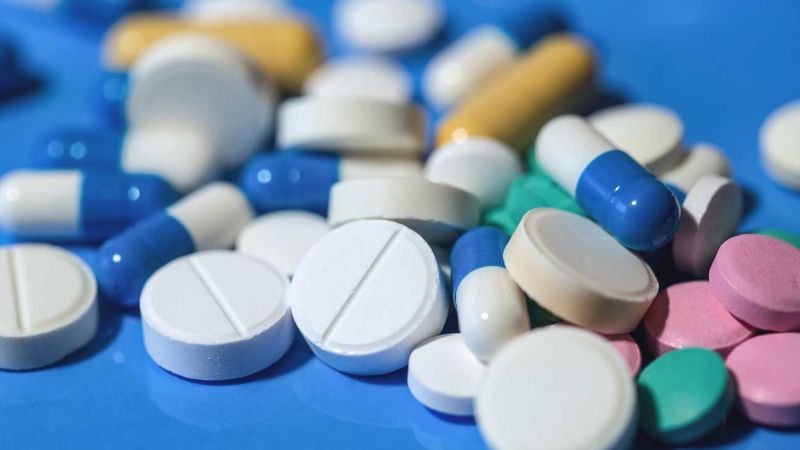As the world enters its third year of a global pandemic, public health officials have raised an alert over the increase in drug overdose deaths in the United States
There were nearly 92,000 drug overdose deaths in the 2020, according to the U.S. Centers for Disease Control and Prevention. This represents a 31% increase in drug overdose deaths since 2019.
Overdose deaths from synthetic opioids such as fentanyl and tramadol increased by 56% between 2019 and 2020. The deaths from natural and semisynthetic opioid such as oxycodone and hydrocodone increase by 4% in 2020. However, overdose deaths from heroin decreased by nearly 4% as well. In addition to the tragedy of opioid overdose deaths, prescription opioid misuse creates a $78.5 billion “economic burden” on the U.S. economy every year.
Much of the current opioid addiction crisis originated with pharmaceutical companies that promoted the use of their products to physicians by promising that the drugs were safe and nonaddictive. These false representations led to widespread prescription opioid addictions and the subsequent diversion of those drugs through healthcare fraud which then cost taxpayers hundreds of millions of dollars. Without the complicity of physicians willing to prescribe opioids at extreme and medically unnecessary levels, these diversion schemes would not have been as prevalent or as successful.
There are strong connections between the prescribing of opioids for chronic pain and opioid misuse and addiction. As many as 29% of patients who are prescribed opioids for chronic pain misuse them, and up to 12% will develop an opioid use disorder, according to researchers. The misuse of prescription opioids can also lead to the use of illicit drugs such as heroin, with an estimated 80% of people who use heroin first misusing prescription opioids.
This pattern of abusive prescribing for opioids is repeated over and over across the country every day. Law enforcement aggressively pursue doctors and other who engage in these practices that increase the rates of substance abuse and opioid overdose deaths.
Recent opioid diversion enforcement actions
In February 2021, a federal grand jury in Kentucky returned an indictment against two doctors for their alleged involvement in conspiracies to illegally distribute opioids and commit healthcare fraud. The two doctors were associated with a pain management clinic and allegedly “offered drug-seeking patients who should not have received opioids easy access to these dangerous controlled substances.” The doctors then billed Medicaid “millions of dollars” for medically unnecessary urinalysis testing for the patients. The doctors’ prescribing conspiracy was also a contributing factor in the “opioid overdose deaths” of at least six former clinic patients.
In May, an Alabama physician and her husband were sentenced to 52 and 30 months in prison, respectively, for prescribing and dispensing controlled substances without a legitimate medical purpose after pleading guilty to related conspiracy charges in December 2020. The defendants admitted to “providing dangerous doses of hydrocodone” to patients without conducting any medical examinations and while the physician was away from the clinic. The clinic also did not employ registered nurses or other qualified medical professionals to cover the clinic while the physician was away and allowed hydrocodone to be dispensed from the clinic’s in-house dispensary in the physician’s absence.
In July, a former Delaware physician was convicted for unlawfully distributing and dispensing controlled substances and for “maintaining a drug-involved premises.” The physician unlawfully distributed or dispensed powerful opioids including fentanyl, morphine, methadone, OxyContin, and oxycodone without a legitimate medical purpose, according to court documents. The physician would “frequently prescribe hundreds of these dangerous controlled substances in high dosages, sometimes in combination with each other or in other dangerous combinations, mostly in exchange for cash.” The physician also knew that the patients receiving these prescriptions were suffering from substance use disorder and/or that the “drugs were being abused, diverted, or sold on the street.”
In September, the U.S. Department of Justice announced a massive healthcare fraud enforcement action involving more than $1.4 billion in alleged losses. One of the cases involved the illegal prescription and/or distribution of opioids and included charges against 19 defendants. Among the defendants were medical professionals “who prescribed more than 12 million doses of opioids and other prescription narcotics” and submitted more than $12 million in false claims.
In November 2021, a federal court in Florida ordered a Tampa-area pharmacy to shut down and prohibited two of its employees from “ever owning, managing, or operating any business where controlled substances are dispensed.” The consent decree resolved allegations that the defendants “dispensed highly addictive and highly abused prescription opioids” while ignoring clear signs of drug diversion and drug-seeking behavior.
Also in November, a federal court in Maryland enjoined a Baltimore-based physician assistant from prescribing opioids and other controlled substances. This consent decree resolved allegations the physician assistant issued “hundreds of prescriptions that had no legitimate medical purpose.” The government alleged that she prescribed “dangerous and potentially lethal combinations of opioid and benzodiazepines” even after patients tested positive for illicit or unprescribed substances in toxicology screens.







